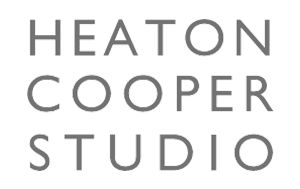ONE of the UK’s most intriguing contemporary artists, Rebecca Scott, has an exhibition of her work starting here in Grasmere, at our Heaton Cooper Studio archive gallery next month.
It’s something of a homecoming for Cumbrian Rebecca who has exhibited all over the world, and was only recently featured in the prestigious British Art Fair at the Saatchi Gallery in London.
These days she shares her home between the capital, and Kendal where she was co-founder (in a former Kendal Mint Cake factory) of the pioneering Cross Lane Projects. This gallery aims to bring new and contemporary art to Cumbria, and has been presenting a curated programme of exhibitions by local, international and British artists with accompanying talks and events.
But it’s Rebecca’s own, startling, work which is highlighted in this new Grasmere show, Machinations. She was invited by Julian Cooper, the mountain painter and a member of the Heaton Cooper dynasty of artists, who says he had been interested by this series of paintings since he first saw them on her website a few years ago.
“They seem to stretch the definition of what’s natural by including images of internal combustion engines in juxtaposition with plants and flowers, making one realise that because an engine is the product of the human mind, it means that it’s also part of nature too.”
He adds: “My own view of the paintings might be surplus to Rebecca’s intention of them as statements about gender stereotypes, but the one doesn’t rule out the other. Of course the ideas behind these paintings wouldn’t be of interest if the paintings themselves couldn’t carry them and they weren’t so powerful, but there’s such physical delight shown in her handling of the paint, and such vividness of both colour and of imagery, that these paintings are very exciting to look at.”
It’s a mini retrospective show featuring paintings from 1994 – 2024, including early works from the 90s which combines images of flowers and engines and more recent works including paintings of natural plants and foliage which are disrupted by an overlaid scribble. The early paintings blend imagery of car engines with cut flower arrangements, associating the stereotypical ideology that engines represent masculinity and flowers femininity. The painted flowers are cultivated arrangements rather than natural, to represent society’s acceptance for the perfection of the female form rather than the natural wilder side.
She creates a luscious image: “The seductive handling of the paint allows the viewer to see both themes in the same beautiful way, symbolizing the juxtaposition of the contrived female and the powerful American Muscle Car but creating an equality between the two.”
The Kaleidoscopic paintings from the 90s were created using pre-digital photographs viewed through a kaleidoscope and feature non-specific details of engines and flowers, resulting in captivating and abstract imagery.
Born in 1960 in Cumbria, Rebecca Scott gained a BA in Fine Art (Painting) from Chelsea School of Art, and an MA in Fine Art from Goldsmiths, London. She has work in private and public collections nationally and internationally, and has exhibited in London, Cumbria, Spain, France, Germany, Sweden, and Norway. In 2019, she was a finalist for Cumbria Life’s Visual Artist of the Year award.
Working from photographs, calendars, catalogues, and magazines, Rebecca is drawn to aspects of private manifestations and public representations of female desire. Her work is representational and takes inspiration from Andy Warhol, Malcolm Morley, Gerhard Richter, Sigmar Polke, Winifred Nicholson, and Georgia O’Keefe.
She says: “I tend to work in series, and retrospectively can see a biographical aspect to my oeuvre; the topics I chose to respond to, have often been meaningful in a personal sense, playing out in reaction to the situations I have found myself in."
She uses genres of paintings as a metaphor - “The language of choice is painting”- previously working through areas as diverse as nudes, flowers, still life, and figurative genres. Her large extensive body of works diverts into knitted works – which are an antithesis of painting and an acknowledgement of the feminist dialogue which is an important aspect to her thought process.
The Grasmere exhibition opens on March 14 and runs until May 31. Open daily 9-5.

